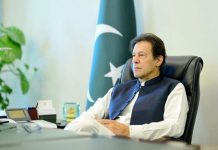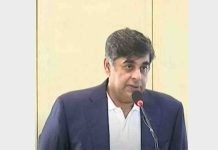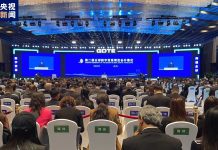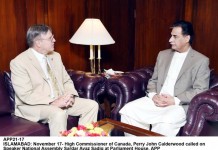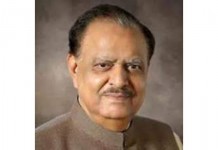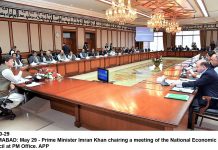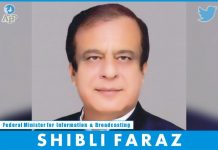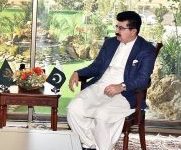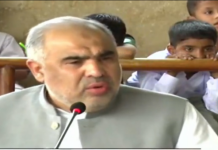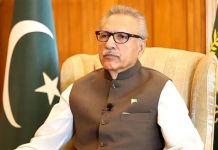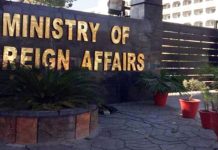BEIJING: Prime Minister Nawaz Sharif on Sunday offered to accommodate all countries in the China Pakistan Economic Corridor (CPEC) while speaking at BRF summit.
“Let me make it very clear that the China Pakistan Economic Corridor is an economic undertaking open to all countries. It has no geographical boundaries,” premier said while speaking at the high-profile Belt and Road Forum (BRF) that opened in the Chinese capital on Sunday.
“We are also trying to establish a peaceful, connected and caring neighbourhood, it is time we transcend our differences, resolve conflicts through dialogue and diplomacy and leave a legacy of peace for future generations,” he said while pointing towards India.
Japan and Vietnam, which have serious maritime disputes with China, have however sent high-level official delegations, to the conclave. The United States has also sent a delegation, led by White House adviser Matt Pottinger to attend the BRF. Sri Lankan Prime Minister Ranil Wickremesinghe and Nepal’s Deputy Prime Minister and Finance Minister Krishna Bahadur Mahara are also attending the BRF.
Overriding India’s strong opposition to projects in areas of contested sovereignty in Kashmir, China and Pakistan on Saturday reportedly signed a memorandum of understanding (MoU) entailing a mega-investment of up to 50 billion dollars in power projects along the Indus River Cascade (IRC), which runs through the disputed Gilgit-Baltistan area.
A local Pakistani newspaper is reporting that on Saturday, Sharif witnessed the signing by Pakistan’s Water and Power Secretary and Chinese Ambassador in Pakistan Sun Weidong, of a MoU to develop Pakistan’s five big water reservoirs, along the IRC.
The IRC, which has a potential to generate 40,000 MW of power, begins at Skardu in Gilgit-Baltistan and runs through KPK.
Under the MoU, around 22,320 MW of power would be generated by the five projects, producing electricity, ranging from 7,100 MW to 2,400 MW.
The fresh injection of $50 billion for IRC will supplement the already committed projects worth $ 57 billion under the CPEC.
PM stressed that hard economic interests must override narrow geopolitical agendas that miss the big picture. He pointed out that the One Belt One Road (OBOR), the other name of BRI “signifies that geo-economics must take precedence over geopolitics.” He highlighted that “the centre of gravity must shift from conflict to cooperation; we stand at the cusp of a geo-economic revolution. In fact, this is the dawn of a truly new era, of synergetic intercontinental cooperation,” he observed.
In a bid to allay India’s concerns over sovereignty, Chinese foreign ministry on Tuesday had reiterated that its position on the Kashmir issue remained unchanged despite its “promotion” of CPEC as an economic undertaking.
Chinese foreign ministry spokesman Geng Shuang said that “With regard to the CPEC, China has been stressing that it is an economic programme. China’s promotion of the relevant programme does not mean that we have changed our position on the issue. These are two different things.
He also highlighted the Simla accord as the basis for resolving the Kashmir issue. “Take Kashmir issue for example, we supported the relevant U.N. resolutions before 1990s. Then we supported a settlement through bilateral negotiation in line with the Simla Agreement.”
Following the BRF, PM is heading for Hong Kong, to participate in the One Belt, One Road Pakistan Investment Forum.

